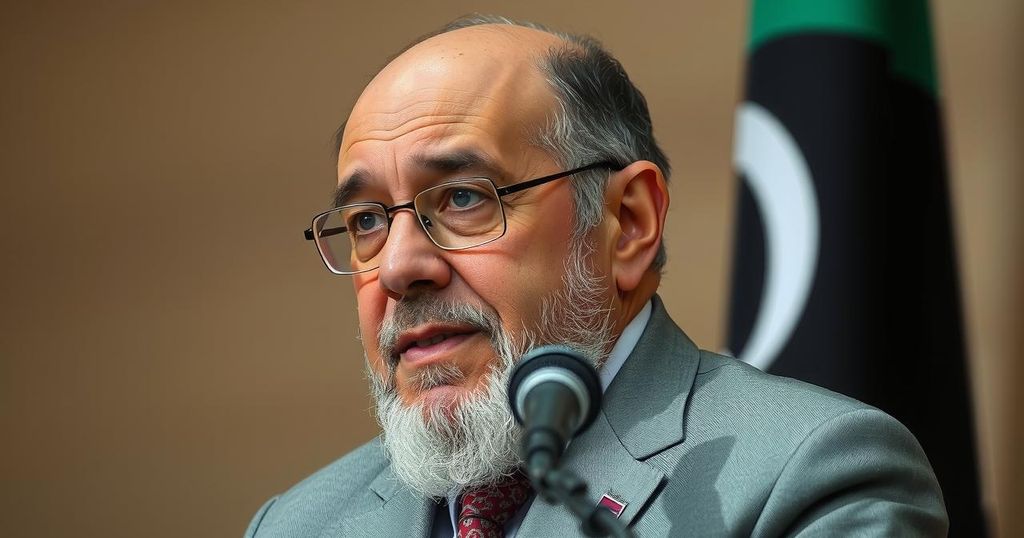Libyan PM Rejects Russian Military Reinforcement Amid Geopolitical Tensions

Libyan Prime Minister Abdul Hamid Dabaiba has opposed Russia’s military reinforcement in Libya, asserting that the country should not become a battleground for international conflicts. His government seeks to prevent further foreign weapon supplies amidst heightened U.S. scrutiny regarding corruption. The situation is further complicated by increased Russian military activities in Libya, following the recent changes in Syria’s leadership.
In response to recent developments regarding Russian military involvement in Libya, Prime Minister Abdul Hamid Dabaiba of the Tripoli-based UN-recognized government has publicly rejected Moscow’s efforts to bolster its military presence in the country. Dabaiba expressed significant concern over the possibility of Libya becoming a battleground for international conflicts, emphasizing that Libya should not serve as a theater for the resolution of geopolitical disputes. This statement follows reports of Russian forces transferring military equipment from Syria to eastern Libya, where a rival administration, supported by military leader Khalifa Haftar, has long received assistance from Moscow.
Dabaiba’s government seeks to prevent the influx of foreign weaponry, warning that such actions would exacerbate Libya’s ongoing internal crises. He stated unequivocally that no patriotic Libyan would accept foreign dominance in their nation. Furthermore, Dabaiba has engaged in discussions with the Russian ambassador to understand Moscow’s intentions regarding military reinforcement.
Notably, analysts suggest that Dabaiba’s decisive stance may be an attempt to align more closely with the United States, particularly in light of recent American economic pressures targeting Libyan authorities due to corruption. The Federal Reserve has suspended dollar transactions with the Libyan Central Bank pending the appointment of an independent auditor to scrutinize financial activities, especially in the oil sector.
Reports indicate that, despite turmoil in Syria, Russian military activities towards Libya have ramped up, with cargo planes reportedly transporting advanced military systems, including air defense equipment. The presence of Russian troops in Libya has increased, with estimates now ranging between 1,200 and 1,500 personnel, underscoring Moscow’s continued commitment to bolstering its strategic foothold in the region despite regional complexities.
Libya has been embroiled in conflict since 2011, following a NATO-backed uprising that ousted former dictator Muammar Gaddafi. The country is currently split between a UN-recognized government in Tripoli and an eastern rival administration led by Khalifa Haftar, who has historically received Russian military support. Russia has likewise established military bases in Syria, which are critical for its influence over the Mediterranean and North Africa. Recent events following the fall of the Assad regime in Syria have prompted Russia to reconsider its military strategy in the region, particularly concerning its operations in Libya.
In conclusion, Prime Minister Dabaiba’s firm opposition to Russia’s military reinforcement in Libya marks a critical moment in the country’s political dynamics. His statements reflect a commitment to maintaining Libyan sovereignty amid ongoing external pressures. With increasing US scrutiny of financial activities in Libya, alongside heightened Russian military involvement, the situation remains precarious, indicating a potential shift in alliances and geopolitical strategies in North Africa.
Original Source: www.theguardian.com








